 |
If you are a boss, the beliefs and assumptions you hold about yourself, your work, and your people shape what you do every day and how you (and others) judge if things are going well or badly.
|
21 |
 |
People want to oversee, work for, and patronize winners, and it comforts and calms them to believe the boss is in control.
|
54 |
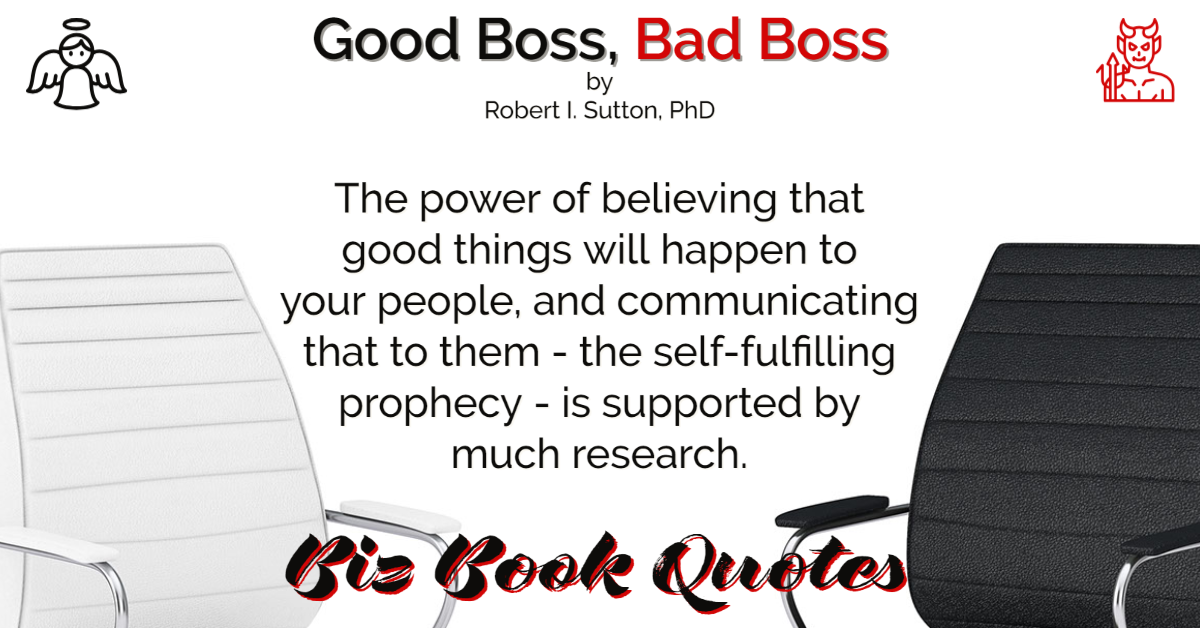 |
The power of believing that good things will happen to your people, and communicating that to them – the self-fulfilling prophecy – is supported by much research.
|
115 |
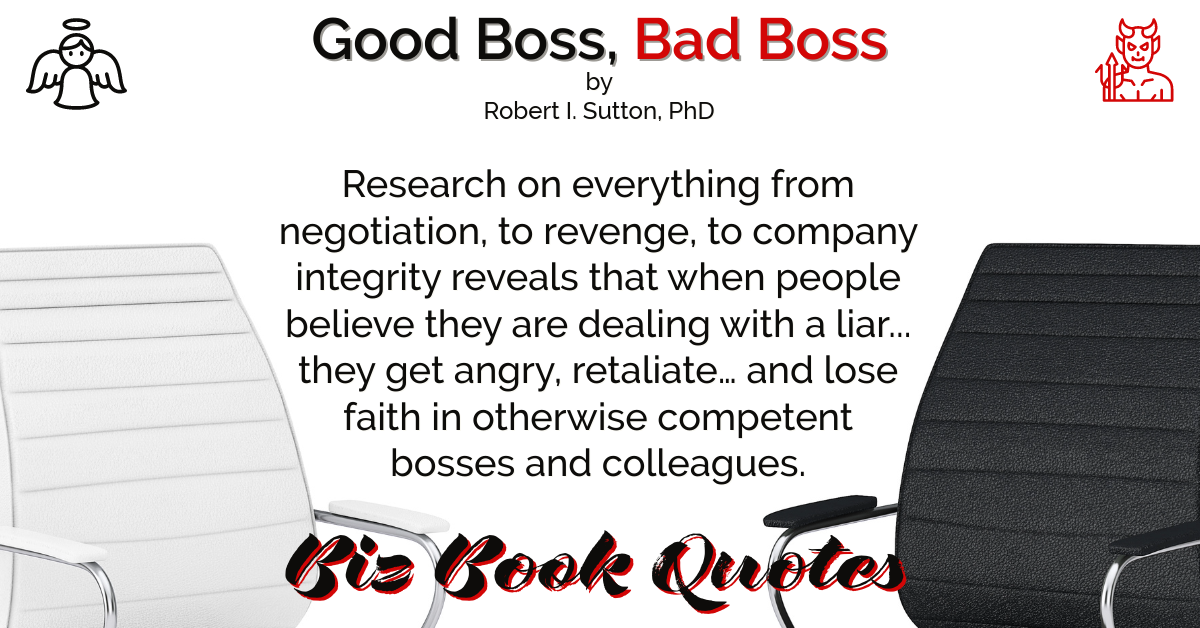 |
Research on everything from negotiation, to revenge, to company integrity reveals that when people believe they are dealing with a liar… they get angry, retaliate… and lose faith in otherwise competent bosses and colleagues.
|
203 |
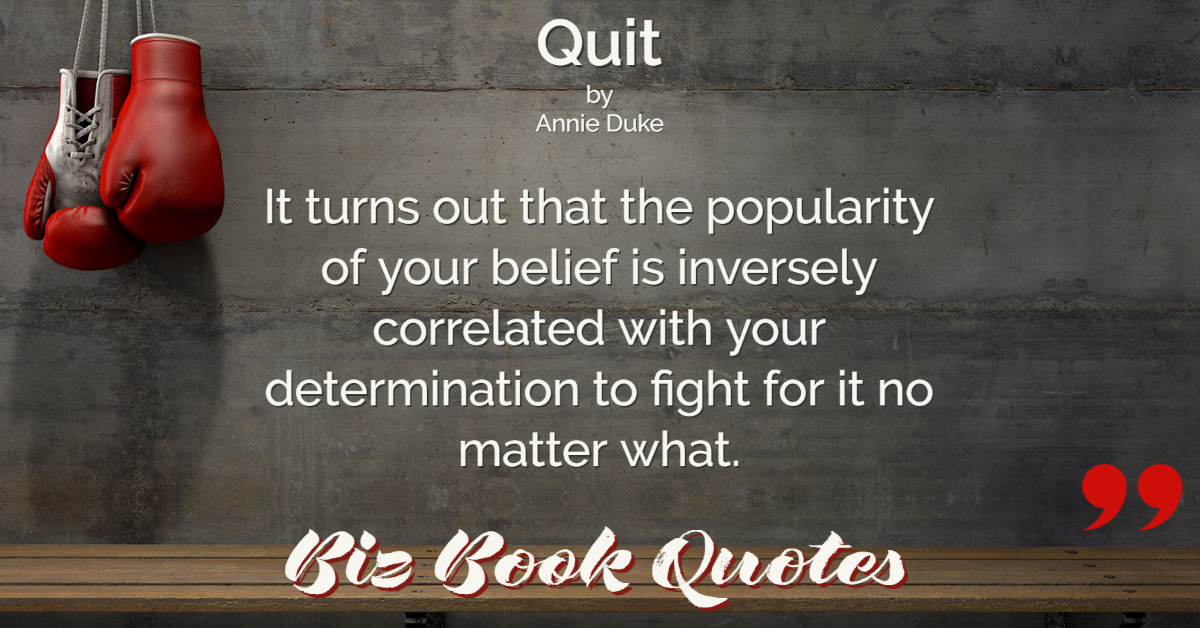 |
It turns out that the popularity of your belief is inversely correlated with your determination to fight for it no matter what.
|
173 |
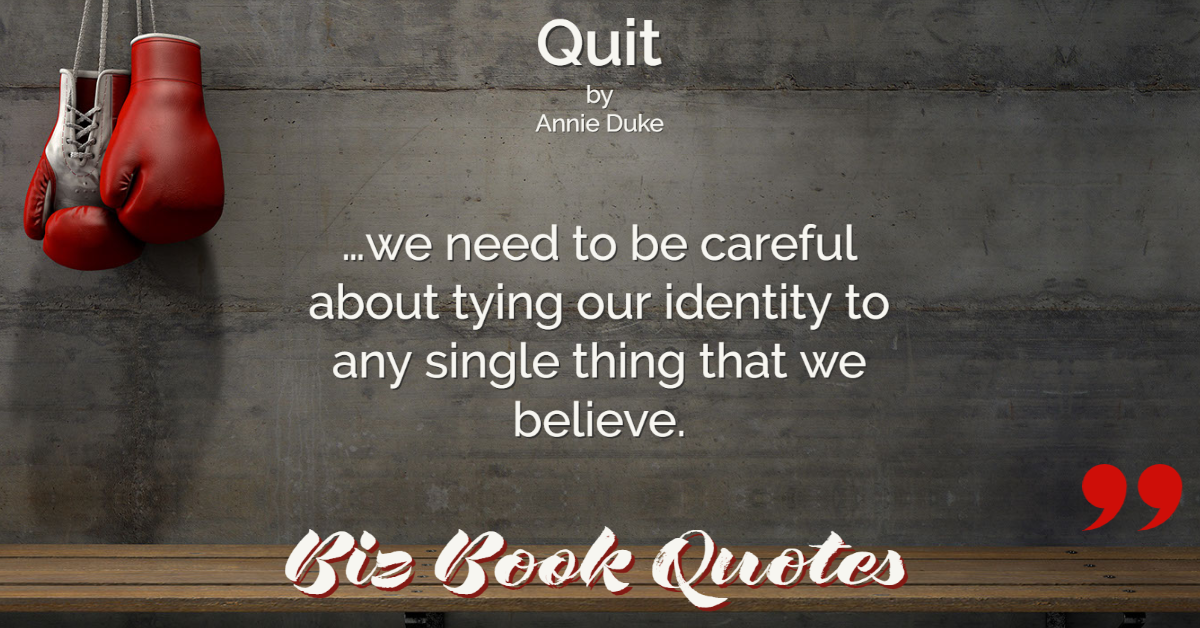 |
…we need to be careful about tying our identity to any single thing that we believe.
|
175 |
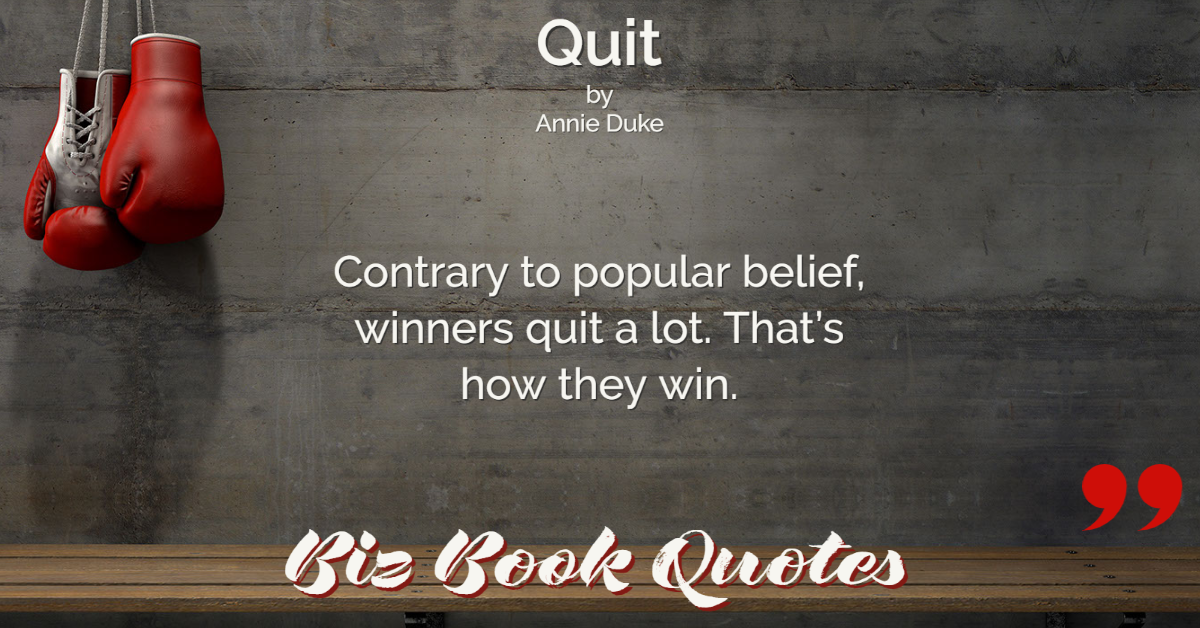 |
Contrary to popular belief, winners quit a lot. That’s how they win.
|
246 |
 |
Today’s best games help us realistically believe in our chances for success.
|
71 |
 |
It’s incredible how many people believe that people will automatically respect and listen to them once they obtain a certain title or level of leadership.
|
020 |
 |
People who operate from a traditional concept of position and title believe that a large amount of power is granted to them based on their title alone.
|
020 |